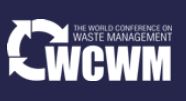IMPLEMENTING A SUSTAINABLE WASTE REDUCTION STRATEGY: A CASE STUDY AT GENERAL MOTORS
DOI:
https://doi.org/10.17501/26510251.2022.3103Keywords:
general motors, zero waste practice, waste strategy, waste managementAbstract
In congruence with General Motors launching a Zero Waste circular economy program, it has committed to diverting more than 90% of operational waste from landfills and thermal processing facilities by 2025. To achieve this goal for GM North America, a methodical waste reduction program was developed through the amalgamation of two interrelated strategies, the Strategic Planning Process and the Operational Strategy Process. This dual approach benefits from a companywide integrated focus on the organization’s strategic goals, yet remains efficient and engaging on a facility level, allowing for operational flexibility of design. To implement this novel methodology, GM established the team-of-teams approach to program management, creating roles in both the Sustainability team and Strategic Programs & Partnerships (SP2) team. The Sustainability team took ownership of the Strategic Planning Process, designing the Zero Waste tracking methodology and establishing annual waste diversion targets for the corporation. The SP2 team led the Operational Strategy Process, owning the specific Zero Waste Budget, and creating waste-centric innovation workshops, such as the Zero Waste Treasure Hunt program and Zero Waste Mini-Missions, which focused on quality improvement techniques, such as PDCA (Plan-Do-Check-Act) and DMAIC (Define-Measure-Analyze-Improve-Control). Projects that are ideated through the program are then submitted through the Zero Waste Projects Module, where they are reviewed based on various funding guidelines and prioritization benchmarks, ensuring funds are awarded to high impact ventures. This methodology has proven successful in surpassing 2021 diversion targets, with a real world 2021 diversion rate of 86.4%, and setting the groundwork to further expand support to meet the company’s Zero Waste diversion glidepath through 2025.
Downloads
References
American Institute for Packaging and the Environment. Retrieved from:
https://www.ameripen.org/page/recycled-content
Chang, C. M. (2010). Service Systems Management and Engineering: Creating Strategic Differentiation and Operational Excellence. Hoboken, New Jersey: John Wiley & Sons, Inc.
Environment Assembly of the United Nations Environment Programme (UNEP). Retrieved from https://wedocs.unep.org/bitstream/handle/20.500.11822/38522/k2200647_-_unep-ea-5-l-23-rev-1_-_advance.pdf?sequence=1&isAllowed=y
General Motors Corporate Sustainability Report (2017). Retrieved from
https://www.gmsustainability.com/_pdf/resources-and-downloads/GM_2017_SR.pdf
General Motors Corporate Sustainability Report (2019). Retrieved from
https://www.gmsustainability.com/_pdf/resources-and-downloads/GM_2019_SR.pdf
GM in the U.S.. (2020, December 31). Retrieved from http://www.gm.com/company/usa-operation
Liker, J. K., & Morgan, J. M. (2006). The Toyota Way in Services: The Case of Lean Product Development. The Academy of Management Perspectives, 20(2), 5–20. doi:10.5465/AMP.2006.20591002
Marczewski, B. (2021). Using a Baseline to Improve Accuracy of Waste Diversion Rate. Proceedings of the 2nd World Conference on Waste Management, Vol. 1(1), 1-8. doi:10.17501/26510251.2021.1101
McChrystal, S. (2015). Team of Teams: New Rules of Engagement for a Complex World. New York, New York: Penguin.
Meehan, W., & Jonker, K. (2018). Engine of Impact: Essentials of Strategic Leadership in the Nonprofit Sector. Stanford, California: Stanford Business Books, an imprint of Stanford University Press.
Nahmias, S., & Olsen, T. (2015). Production and Operations Analysis: Seventh Edition. Long Grove, IL: Waveland Press, Inc.
Shang, G. (2013). The Toyota Way Model: An Implementation Framework for Large Chinese Construction Firms, 90-91, Retrieved From: https://core.ac.uk/download/pdf/48670134.pdf
The Greenhouse Gas Protocol (2015). A Corporate Accounting and Reporting Standard. Retrieved from: https://ghgprotocol.org/corporate-standard
U.S Environmental Protection Agency (EPA), Waste Management Hierarchy and Homeland Security Incidents. Retrieved from https://www.epa.gov/recyclingstrategy
Downloads
Published
How to Cite
Issue
Section
License
Copyright (c) 2022 Proceedings of the World Conference on Waste Management

This work is licensed under a Creative Commons Attribution 4.0 International License.

This work is licensed under a Creative Commons Attribution 4.0 International License.






